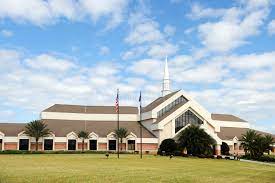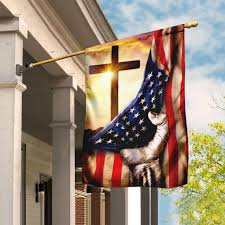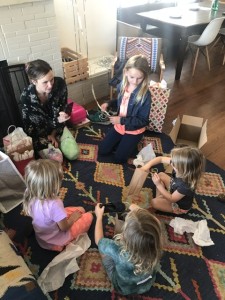If we’re looking for the theological and ecclesial source of the Capitol Insurrection last year, we must look further than Christian Nationalism. We need to look at Apolitical Evangelicalism embodied in the Church Growth Movement of the 80’s and 90’s.
Many of us were connected in some way to the Church Growth Movement that was most clearly identified with mega churches like Willow Creek and Saddleback. If you weren’t directly apart of it, you’ve certainly heard of it and experienced some level of its influence on the Church in the United States.
While white Christian nationalism (embodied exactly one year ago in the Capitol insurrection) often receives the primary critique of failed politics, Apolitical Evangelicalism is its bed fellow. And, it contributed to normalizing a neutered gospel absent from redeeming the broken systems and structures that break many of our neighbors.
As many Evangelicals have taught and advocated, the DNA of the church is intended to be a public witness of God’s kingdom in addition to God’s saving work in our personal lives. Organizations like Evangelicals for Social Action, Sojourners, Red Letter Christians, World Relief and many others have modeled this holistic faith. That said, the Church Growth Movement profoundly altered this holistic DNA of the Church for the sake of building a “product” to win individuals souls. It created a “Apolitical Evangelicalism” that is the subtle culprit for so much of our current crisis of Christian identity and politics that we find ourselves in today.
There are three primary characteristics of Apolitical Evangelicalism that must be named and examined to understand the roots and implications of its contribution to the rise of Trumpism and the Capitol insurrection.
Personal Transaction
The “gospel” of Apolitical Evangelicalism prioritizes personal salvation over and above societal salvation. As a reaction both to the “liberal” social justice theology built by Walter Rauschenbusch in the early parts of the 20th century and their distaste for an abrasively partisan (right-wing) theology of the 80’s manifest most clearly in Jerry Falwell and Pat Robertson, Apolitical Evangelicals discarded public theology all together. They didn’t want politics to get in the way of church growth that led to more people accepting Jesus as their personal savior. For them, a personal conversion was the embodiment of the gospel, which relegated societal conversion to the potential overflow of the former.
Speaking in an interview about the success of the mega-church movement in 2005, Rick Warren said, “The second myth is that mega-churches are politically active. In fact, you don’t get to be a mega-church if you get involved in other issues.” In short, to be political is to compromise the consumable product of church growth which leads to personal conversion. The problem with this is twofold; without any kind of public theology, moderate Christians will later default to extremist right-wing politics (most clearly in the 2016 Presidential election) because Republicanism had culturally become synonymous with evangelicalism. Second, to isolate politics from the gospel is an insufficient and privileged position. Politics can simply be defined as the ordering of society. Those on the underside of power are directly impacted by politics in so much as society remains ordered in a way that keeps them at the bottom. For Christians to be apolitical is to fail to take seriously Jesus’ commandment to love our neighbor as ourself.
As the late Bishop Desmond Tutu said, “I don’t preach a social gospel; I preach the gospel, period. The gospel of our Lord Jesus Christ is concerned for the whole person. When people were hungry, Jesus didn’t say, ‘Now is that political or social?’ He said, ‘I feed you.’ Because the good news to a hungry person is bread.”
Homogenous Church Growth Strategy
In his book, The Myth of Colorblind Christians, Jesse Curtis makes a compelling case for the direct impact of the church growth movement on the evangelical absence from active social and political engagement; especially as it pertains to race. Donald McGavran was a missionary in India who discovered that converting people indigenous to the land was more effective when they could retain their culture and community. While in an international setting, his learnings could be a governor to colonialists missions paradigms and imperial Christianity. But, when he came back to the United States in the mid-1900’s and applied his “Homogenous Unit Principle” here, it planted seeds for a more subtle segregation in the wake of the civil rights movement. In 1974, Peter Wagner said, “Show me a growing church, and I’ll show you a homogeneous…church.” This idea that people like to worship with people who are similar to them made sense internationally, but when that same argument is applied to the majority, white culture, it created a missiological excuse for building churches that invited people to prioritize their own comfort over racial, relational and ecclesial integration.
Further, it allowed issues of systemic injustice to remain out of focus for white evangelicals who had created a insular bubble that didn’t expose them to so many of the systemic sins harming people of color in our country. One of the primary ways to undo systemic injustice is through active engagement in policy change. Or, put another way, to be political. Instead, evangelical attention was often more focused on trying to attract the “Saddleback Sam” archetype of middle class, white men who could fill pews and offering plates than leverage their influence for the liberation of their sisters and brothers on the underside of power. Obviously, this was not true of all evangelicals or mega-churches, but it was a temptation that that demographic was especially vulnerable to.
Suburban White Flight
Finally, in the wake of WWII and the Civil Right movement, cities became more diverse and white people began to flood to the suburbs. It was among these communities that the Church Growth Movement took flight. As a result, some of the largest, most influential churches in the United States were made of up congregants who were largely removed from the systemic injustice in the United States. Daniel Hill describes privilege as “the ability to walk away.” Simply put, these communities had the privilege to walk away from the political engagement because they lived comfortable lives. Maintaining the status quo was good news, so a convenient faith that didn’t take on the polarizing issues was the ideal fit. The leaders of these churches were smart enough to steer away from taking on any kind of significant policy issues for the sake of keeping the peace and ensuring any newcomers don’t feel threatened.
In many ways, these characteristics bring up questions of theology (what is the Good News?), sociology (what is the impact of homogenous community on societal engagement?) and political ethics (how are Christians to engage in systems change as part of our gospel mandate?). While the questions require much more attention, what is clear is that this form of evangelicalism led to an apolitical posture toward systems change and left its congregants with very few theological or practical tools for engaging policy change with kingdom values.
In the absence of a political ethic grounded in the teachings of Jesus, a vision of the kingdom of God and the plight of those on the margins, many of these moderate, well meaning Christians were swept into the narrative of victimization propagated by Trump leading to the Capitol Insurrection on January 6th, 2021.
We can choose to ignore the history or we can choose to change it by building a better way forward. A way that is relentlessly proximate to the pain of those on the underside and unbending in our commitment to leverage our influence for the flourishing of all. One year later, it is this better way that I pray we turn to as followers of Jesus and citizens of the United States.

 This past Sunday, Vice President Pence was invited to speak at First Baptist Church in Dallas for the “Celebrate Freedom Rally” at their Sunday morning services. Pastor Robert Jeffress called the event, “Our annual patriotic service” in which the church celebrates “God’s unique blessings on our country.”
This past Sunday, Vice President Pence was invited to speak at First Baptist Church in Dallas for the “Celebrate Freedom Rally” at their Sunday morning services. Pastor Robert Jeffress called the event, “Our annual patriotic service” in which the church celebrates “God’s unique blessings on our country.” 